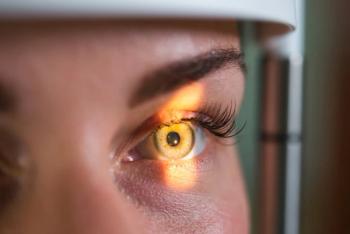
7 things ODs can learn from Super Bowl
Super Bowl 50 is in the books, and the Denver Broncos and Peyton Manning are the Super Bowl champions! What a storybook ending for Manning and the Broncos. Not all of our practices will ride off into the sunset with a world championship, but there are many lessons we can learn from the Super Bowl.
The views expressed here belong to the author. They do not necessarily represent the views of Optometry Times or UBM Medica.
Super Bowl 50 is in the books, and the Denver Broncos and Peyton Manning are the Super Bowl champions! What a storybook ending for Manning and the Broncos. Not all of our practices will ride off into the sunset with a world championship, but there are many lessons we can learn from the Super Bowl.
What can we learn from watching the Super Bowl that we can apply to our practices?
1. You are responsible for the game plan
As the owner and coach of your team, you are responsible to have a game plan for your office. The game plan must be well thought out and better yet, written down. It must also be communicated to everyone on the team (staff), and they must all know their roles and why they are important.
The good news is that all different types of game plans can work, and in optometry, we have numerous options. You can be fast paced or slower paced, you can be a boutique oriented toward high-end glasses or you can be medically oriented. In the end, many game plans can win, but you must have an identity to be truly great. All too often in optometry, we do not have a game plan. Decide what you want your practice to be and commit to that game plan. Stop trying to be everything to everybody!
More blogs:
2. You are responsible to assemble the team
Once you have the game plan, you can assemble the team. If you decided to be a specialty contact lens-oriented practice, then staff should include technicians with interest and training in contact lenses. Hiring the best optician in the world for a contact lens practice may not be the best option. Know your game plan and assemble the best team possible to execute your vision. The first step in hiring is to know your needs-hire to fill a need and specific part of the plan.
3. You have to train the team
Regardless of how good the players are when they start, you must invest in training. Think of how many hours football teams practice for that four-hour game. They lift weights, watch film, and practice plays over and over. This is what makes them professional. For us to have the office we want, we must also dedicate time to training. Training our team and evaluating our practices and our performances are critical. Remember that most often the simplest plans are the best. Concentrate on the big picture, train, and then let the players do what they do best.
More blogs:
4. You have to know the rules
Just like football is governed by rules, our practices also have rules and regulations. Know the rules! Know the state board regulations and understand how regulatory changes in HIPPA, OSHA, labor laws, and other areas impact you and you practice.
If you take insurances for either vision or medical, read the contracts. In the past year, we have surveyed more than 2,000 doctors and staff at various lectures across the country. Amazingly, fewer than five percent had read their vision plan contracts. This is like playing football and not knowing the rules. Know the rules and play to win.
5. Ignore the media-or at least parts of it
I love when coaches are answering questions, and they give the standard answer, “I can’t worry about that; I am focused on how we can improve and get better as a team.” We can learn a lot from this answer. Maybe rather than getting on chat boards and complaining about all the ways everyone is out to get us, how about just working on our practices and making them better?
6.Every minute counts
TV time for commercials during the Super Bowl cost $4.5 million per minute. We may not be able to charge that much for our exams, but our time-and our patients’ time-is valuable. Be efficient and purposeful with every minute and every patient. Being purposeful and efficient is the key to avoiding turnovers and converting patient to glasses and contact lens sales.
More blogs:
7. Be a difference maker
In the Super Bowl, there are always difference makers-players who make plays and do the little things that we will always remember. You and your staff have an opportunity to be a difference maker to your patients. Go into every day and every exam with the mindset of doing something special for your patients. It may be as simple as commenting on a nice outfit or piece of jewelry or maybe as big as discovering a vision-threatening condition, but we all have the chance to make a difference in our patients’ lives-and ultimately that is our Super Bowl!
Newsletter
Want more insights like this? Subscribe to Optometry Times and get clinical pearls and practice tips delivered straight to your inbox.








































